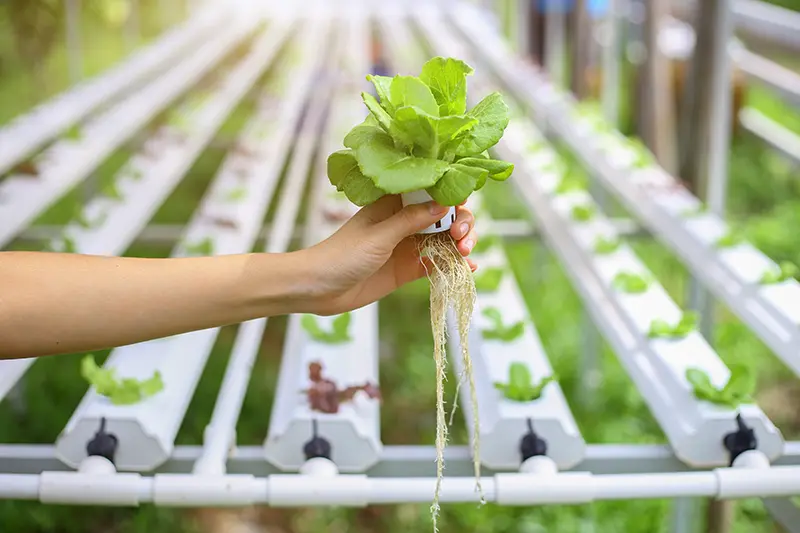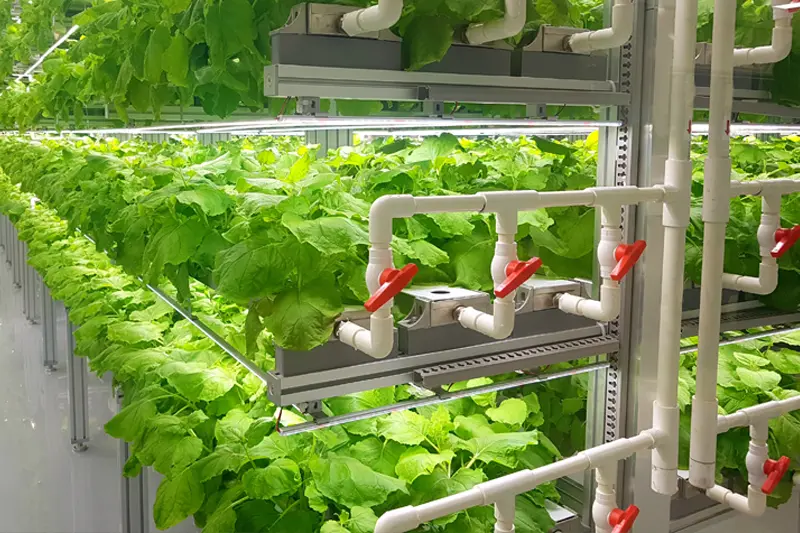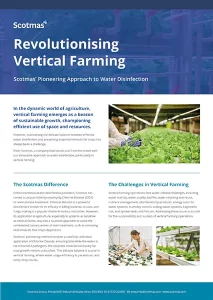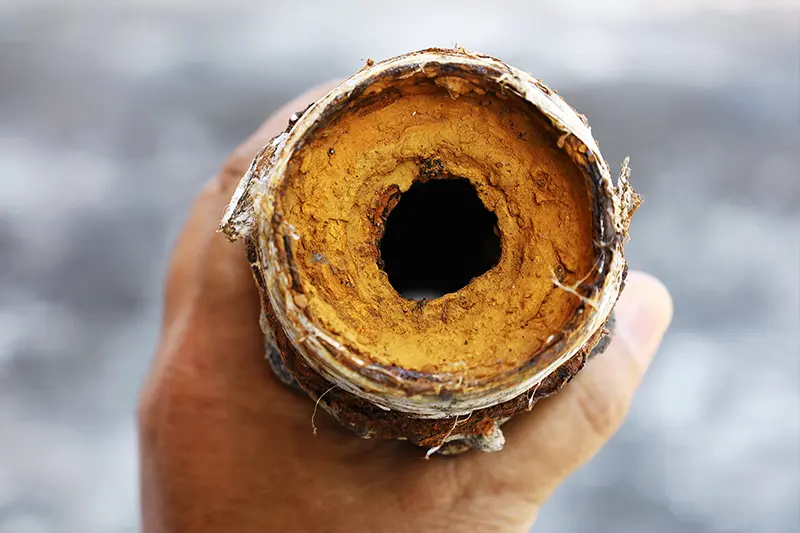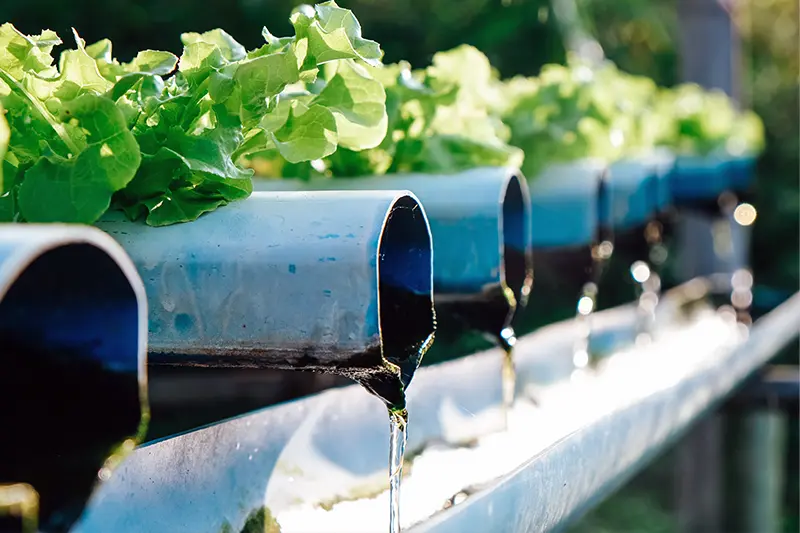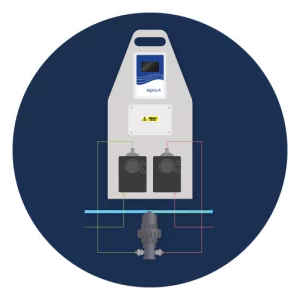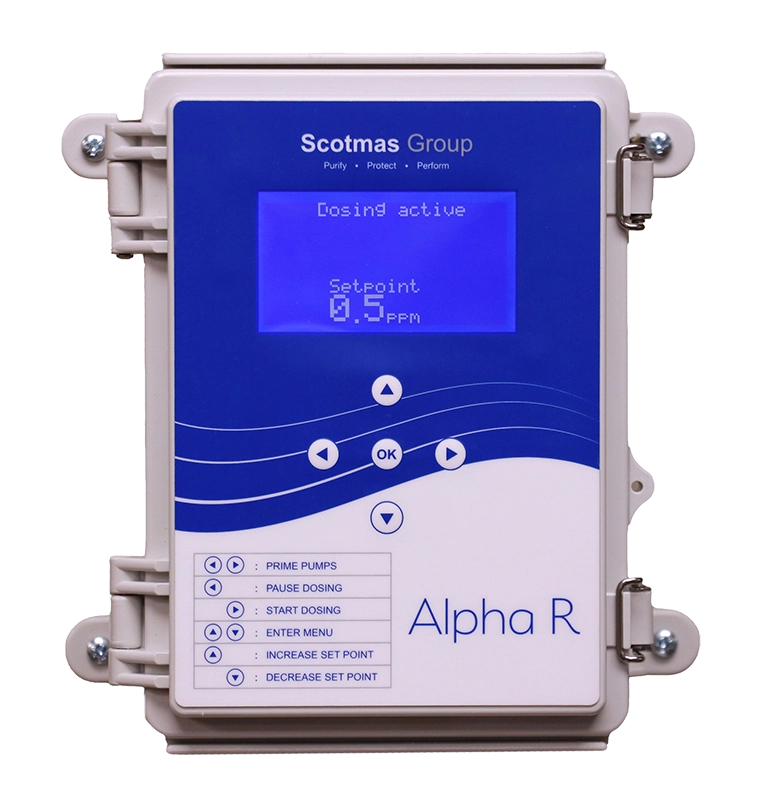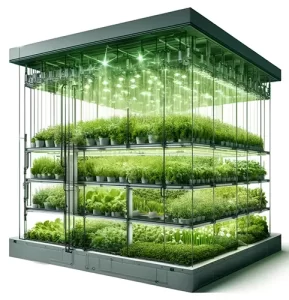In the dynamic world of agriculture, vertical farming emerges as a beacon of sustainable growth, championing efficient use of space and resources.
However, maintaining the delicate balance between effective water disinfection and preserving essential minerals for crops has always been a challenge.
Enter Scotmas, a company that stands out from the crowd with our innovative approach to water disinfection, particularly in vertical farming.
Chlorine Dioxide – The Scotmas Difference
Unlike traditional water disinfection providers, Scotmas has carved a unique niche by employing Chlorine Dioxide (ClO2) to revolutionise treatment. Chlorine Dioxide is a powerful disinfectant known for its efficacy in killing bacteria, viruses, and fungi, making it a popular choice in various industries.
However, its application in agriculture, especially in systems as sensitive as vertical farms, requires a nuanced approach to avoid the unintended consequences of over-treatment, such as removing vital minerals that crops depend on.
Scotmas’ pioneering method involves a carefully calibrated application of Chlorine Dioxide, ensuring that while the water is rid of harmful pathogens, the essential minerals necessary for crop growth remain untouched.
This delicate balance is crucial in vertical farming, where water usage efficiency is paramount, and every drop counts.
